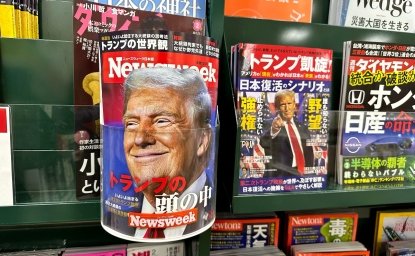Procedural Maneuvers Go Nowhere in Twin Crises
Procedural Politics
Roll Call
Oct. 22, 2013
When asked if I intended to write a column on all the procedural moves and counter-moves during the twin crises of the shutdown and near debt default, I said “no.” I didn’t want to dignify or seem to make sense of such senseless forays into futility.
A procedural flow chart of the moves would probably resemble a wobbly, downward spiral into a sealed cul-de-sac — picture the flight of an inebriated bumble bee in death’s throes.
The shutdown and debt limit tactics weren’t brilliantly designed legislative game plans culminating in a successful exit strategy. The only outstanding question was whether the perpetrators could achieve extrication without self-annihilation. As it turned out, Congress belatedly stumbled out the exit, kicking a can.
Notwithstanding my demur at producing a full-blown flow chart, the following sketch may partially satisfy those still hungering for a procedural fix. On Oct. 12, the real Columbus Day, another Chris, surnamed Van Hollen, rose on the House floor and offered a motion to take from the speaker’s table the original continuing appropriations resolution passed by the House. The Maryland Democrat’s motion would concur in the Senate amendment, the clean CR language, and not the House amendment delaying implementation of Obamacare.
Under House Rule XXII, Clause 4, once the stage of disagreement has been reached between the House and Senate on a measure, any member can offer a privileged motion for the disposition of any amendments pending to it. However, Speaker Pro Tem Jason Chaffetz, R-Utah, informed Van Hollen that pursuant to a previously adopted special rule, only the majority leader or his designee could offer such a motion.
There ensued a series of parliamentary inquiries by Van Hollen that produced the following headline on a political blog: “House Republicans Changed the Rules So a Majority Vote Couldn’t Stop the Government Shutdown.” The blog noted that 28 House Republicans had publicly stated they would vote to reopen the government if given the chance — more than a majority of Democrats remained united. But Republican leaders “made sure no such vote could happen” by conspiring with Rules Committee members “to keep a clean CR off the floor.”
Van Hollen’s final inquiry was more rhetorical than parliamentary: “Why are the rules rigged to keep the government shut down?” Nevertheless, his complaint was valid (if not his motion). The special rule in question insisted on the House amendment and requested a conference with the Senate. That brought the two chambers into formal disagreement. The Senate sent the CR back to the House the next day (Oct. 1), after disagreeing to the request for a conference. That’s when House rules would ordinarily permit a privileged motion by any member, though such motions are usually offered by committee chairmen.
Although Van Hollen asserted that the special rule “amended the standing rules of the House,” it did no such thing. An amendment to the standing rules is a lasting action. By contrast, special rules from the Rules Committee relating to the consideration of a specified measure temporarily waive, set aside or otherwise depart from the standing rules. Put another way, special rules are exceptions to the standing rules.
For instance, most special rules allow for the immediate consideration of a bill after the rule is adopted, thereby setting aside the House rule requiring bills to be considered only in the order in which they appear on the calendar. That allows the leadership, through the Rules Committee, to control the floor agenda. Special rules also depart from the standing rules by limiting the amount of general debate time, restricting an otherwise open amendment process, and specifically waiving certain standing rules to permit the consideration of bills otherwise in violation.
As Republicans used to say when in the minority, the Rules Committee is really the “unruly committee” because its principal function, subject to House approval, is to temporarily set aside any number of standing rules to permit specific measures to be considered according to specified procedures.
Van Hollen’s complaint is the same as protests once raised by minority Republicans — that special rules are often used to advantage the majority party at the expense of the minority. That’s why the House is considered more efficient and less democratic than the Senate. The Rules Committee is an exceptional leadership tool for managing an otherwise unwieldy House.
Author

Former Director, the Congress Project, Wilson Center; Former Staff Director, House Rules Committee
Explore More
Browse Insights & Analysis
The Transatlantic Partnership: A Status Report from the Global Europe Program


